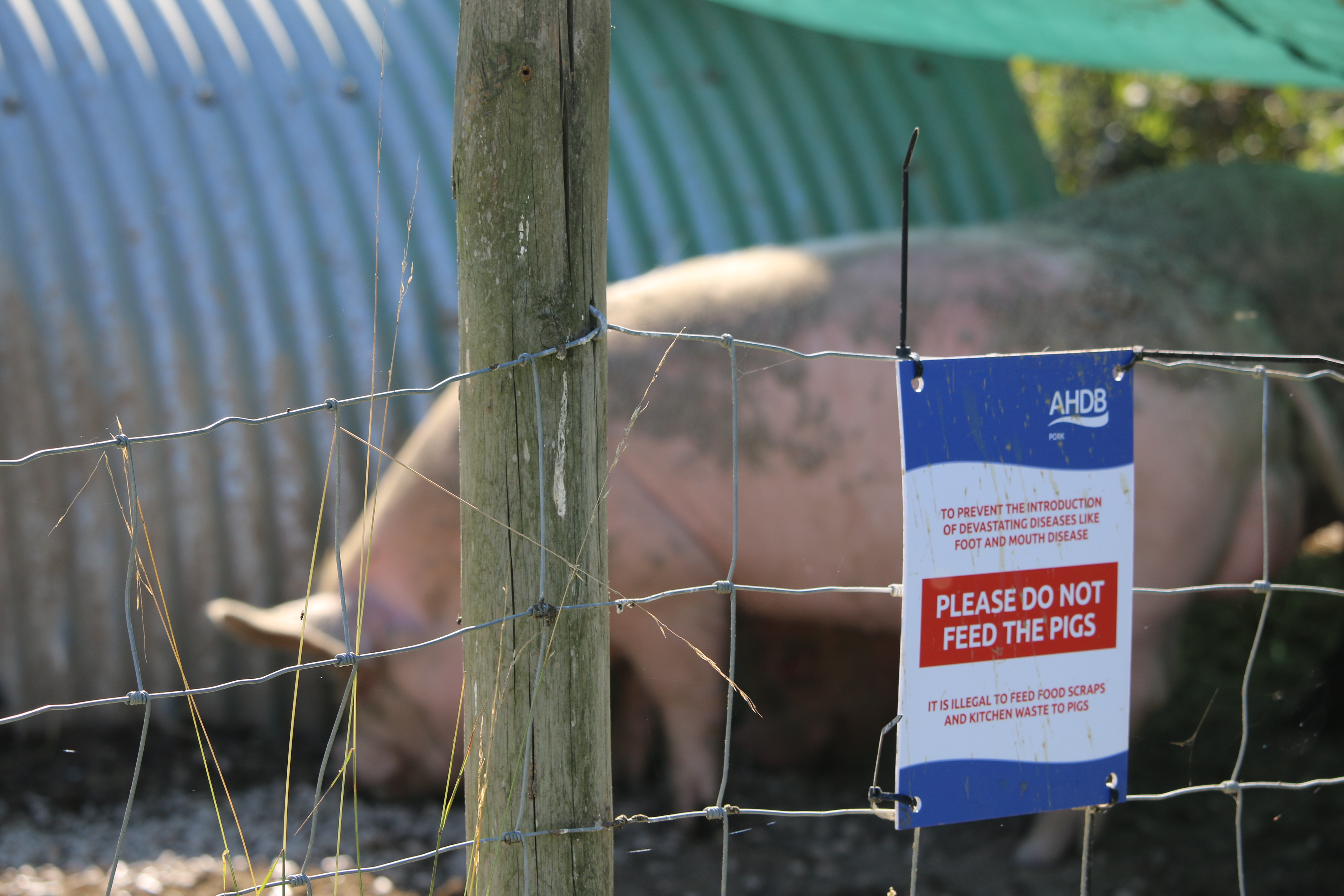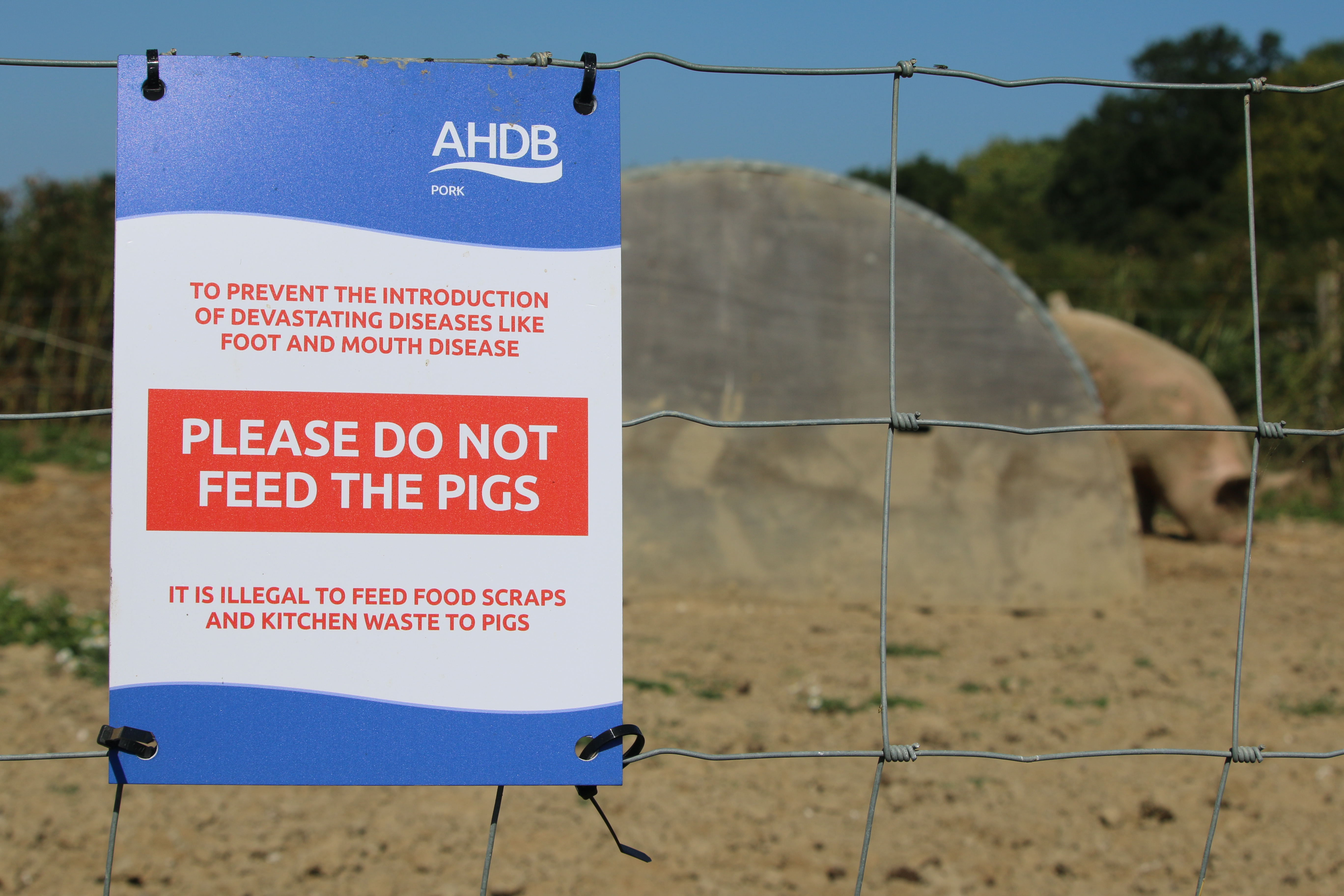



NPA briefs UK pig herd on African swine fever
The NPA provides a current situation report on ASF around the world and discusses the potential impacts of an outbreak on the UK pig herd.Current situation report
In the EU there were 6,741 outbreaks of African swine fever between 2016 and 2018. To the end of November 2018 there were 1,243 current outbreaks. Around 733,706 pigs have been found dead or destroyed, although the total number of wild boar deaths is unknown.
Countries affected are Belarus, Belgium, Bulgaria, Czech Republic, Estonia, Hungary, Latvia, Lithuania, Moldova, Poland, Romania, Russia, Sardinia and the Ukraine.
Defra’s latest assessment in January 2019 states that the disease "currently appears to be restricted to the south-east region namely Ukraine, Romania and Moldova, with other countries reporting no outbreaks in November and December. Although it is reassuring to note that the incidence in domestic pigs has been declining since July, it remains to be seen whether the decrease in incidence is related to improved farm biosecurity. The picture in wild boar, however, is concerning and shows ASF cases are increasing particularly in the Baltic States and Poland, with a few cases also in northern Bulgaria. Thus, while control efforts may be effectively reducing incidence in domestic pigs, the wild boar population represents a significant reservoir in Eastern Europe which may hinder eradication".

In China, the disease has been reported in 26 provinces (there are only 5 left unaffected) in 113 outbreaks since August 2018. According to the latest update by the Food and Agricultural Organisation (FAO), more than 916,000 pigs have been culled in China in an effort to halt further spread. The disease has spread to all major pig producing regions.
Chinese authorities have reported that over 60 percent of the outbreaks are associated with feeding swill or catering waste to pigs. Nevertheless, there are other pathways which need to be considered, including the movement of infected pigs over long distances to market, the exposure to contaminated equipment, feed or water and vector transmission.
Impact on the UK
ASF is a significant threat to the UK pig industry – the ability for it to make large geographical jumps as seen with Belgium and the Czech Republic show how easily it could arrive here. ASF is being spread by people bringing contaminated meat into countries, probably completely unaware that it is carrying the disease, and disposing of it in a way that pigs (wild boar in most cases) can get access to it.
The UK has become increasingly dependent on its export market which is now worth £470 million a year. It took 5 years to regain trade with China after the last notifiable disease outbreak (Foot and Mouth, 2001) and this is now one of the industry’s most important markets. Unfortunately, China does not recognise the EU’s regionalisation strategy for controlling spread of ASF and therefore once ASF is reported in a country any exports of pigmeat from that country cease to be accepted by China.
The economic climate within the UK pig industry is not currently positive as pork prices have been dropping over a prolonged period and input costs, especially feed, have increased. Many producers are now losing money, so if ASF were to hit, we would certainly see many small family farms going out of business.
The pig industry would not be the only sector to suffer. As was the case during the 2001 Foot and Mouth Disease outbreak, if the disease was widespread, large swathes of the country would be placed under movement restrictions. This would have a significant impact on tourism and the businesses that rely on passing trade in rural areas.
UK vulnerabilities
After similar reports from Taiwan, South Korea and Thailand, the Australian border control has now also confirmed the discovery of ASF in food products being brought into the country. After increasing their efforts as the virus continues to spread globally, the authorities seized 152 pork products at Australian airports and mail centres over a 2 week period. Following testing by staff from the Department of Agriculture and Water Resources, ASF was found in 6 of them.
The biggest risk to the UK remains the import of contaminated pork products, including in consignments of pigmeat and also personal imports by travellers. UK Border Force controls provide a fraction of the level of security seen in countries such as Australia and there is a complete lack of messaging at points of entry to the UK about the risk of ASF.
There are many people that will be coming to the UK to work or visit from affected countries who will have no idea about the disease. Some may have bought local product, either as a souvenir or because it reminds them of home without realising that it could be carrying ASF.
There is also a large community of hunters that come from the UK and travel to countries in order to shoot wild boar. There is of course a risk that contaminated material could be brought back on clothes and boots or in vehicles.
Although the likelihood of any imported product reaching pigs is relatively low, we have several main points of potential access.

The most concerning is the growing feral pig population in the UK, because it is one that currently we have limited control over. The largest population resides in the Forest of Dean (see Feral Wild Boar briefing for more detail). As this population grows, the pigs are leaving the core area of the forest and entering areas frequented by humans, such as picnic sites, towns and villages. They are finding easy access to food sources, largely in domestic bins and as such could easily come into contact with discarded contaminated meat. The risk associated with ASF being identified in UK feral pigs is twofold: these animals frequently come into contact with domestic pigs on units surrounding the forest which would increase the chance of spreading the virus; plus it would be incredibly difficult to demonstrate that the disease had been successfully eradicated from the UK if it were present in feral pigs.
Secondly, 40 percent of the UK sow herd is permanently outdoors and paddocks are often near to footpaths, laybys or roads. The Classical swine fever outbreak in 2000 began in an outdoor herd situated next to a public footpath and this was thought to have been caused by a passer-by discarding contaminated meat into the paddock which the pigs gained access to. There are also many indoor pig farms that have public footpaths alongside or right through them.
Thirdly, the UK is home to a large community of smallholders and pet pig keepers that studies have shown often do not understand the risk of feeding kitchen scraps to their pigs or the fact that this activity is illegal.
Finally, there are many Eastern European workers on pig farms some of whom may well bring pigmeat product back from home without thinking. We continue to encounter a lack of understanding amongst staff in general that pork products should not be brought on farm and this includes visitors and delivery drivers.
NPA position
Whilst NPA and other industry bodies have been working with Defra and APHA on a comprehensive communications programme aimed at tackling all of the perceived vulnerabilities listed above, the key area where we have made no progress is in stepping up border controls.
We will therefore continue to insist that UK Border Force takes this issue far more seriously than it has to date and increases the level of resource dedicated to intercepting illegal imports of potentially contaminated pork, particularly from high risk countries.
We would like to see much better visible communication to passengers and lorry drivers entering the UK via ports, airports and on Eurostar about the risk of the disease and the consequence of illegally importing pork products into the UK from affected areas and discarding them in areas where pigs can gain access.
A more coordinated and effective approach to management of wild boar populations is also urgently required. NPA believes it is vital that Defra revises the currently outdated 2008 Feral Wild Boar Action plan and takes an active role in helping to shape a UK strategy for feral wild boar which includes the need for culling to reduce population sizes to manageable levels.
NPA will continue to urge pig farmers to increase their biosecurity levels in order to limit the risk of their own pigs becoming infected.
You can read the full report here.






